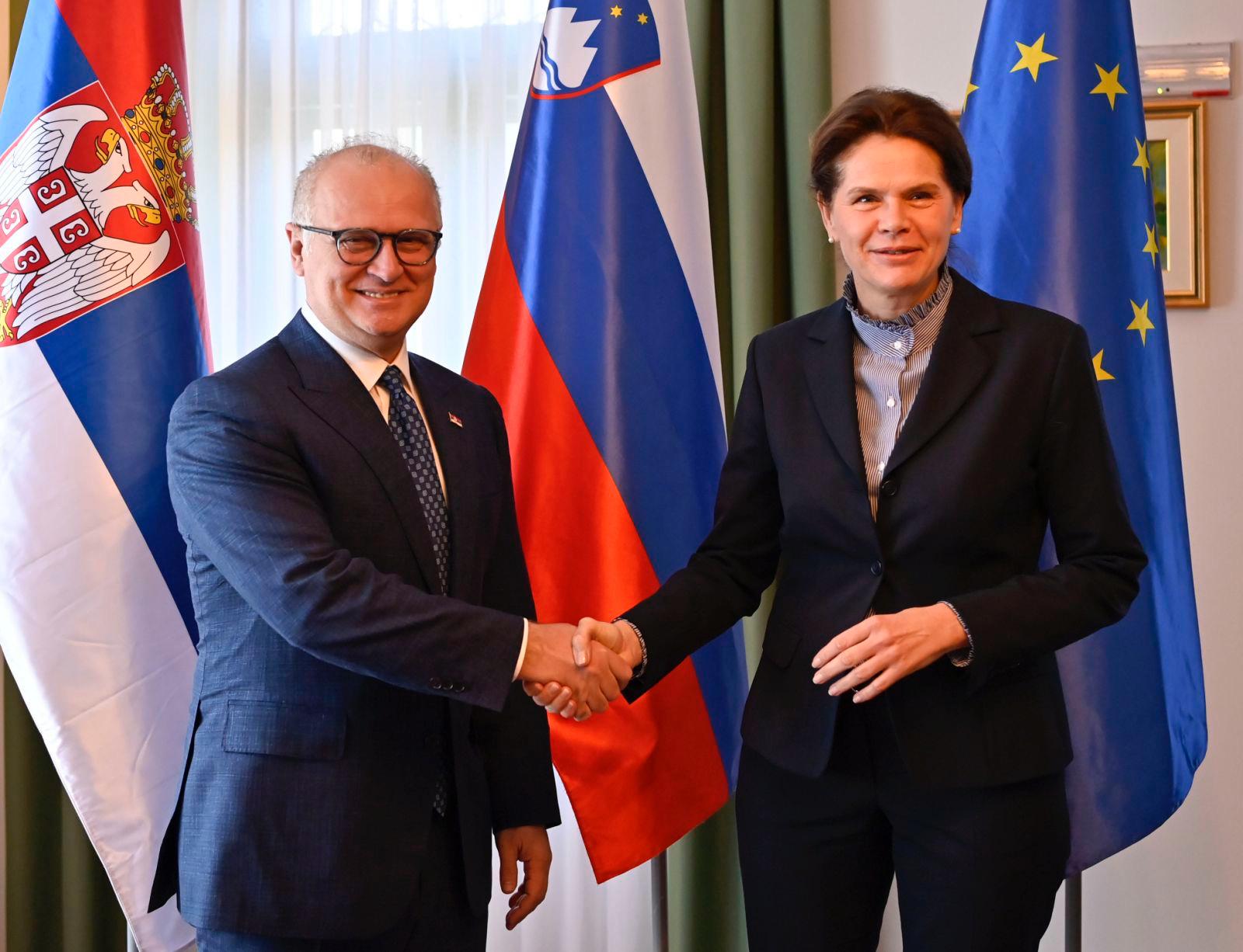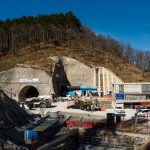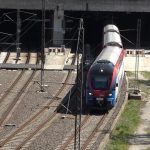 The Slovenian Minister of Infrastructure, Alenka Bratušek, and the Serbian Minister of Construction, Transport and Infrastructure, Goran Vesić proposed the creation of Belgrade – Ljubljana rail connection via Zagreb during a bilateral meeting in Bled, in northwestern Slovenia.
The Slovenian Minister of Infrastructure, Alenka Bratušek, and the Serbian Minister of Construction, Transport and Infrastructure, Goran Vesić proposed the creation of Belgrade – Ljubljana rail connection via Zagreb during a bilateral meeting in Bled, in northwestern Slovenia.
The two ministers agreed to establish a joint standing committee with Croatia, Austria, and Italy to explore the re-establish the night train service linking the three capitals as well as to enhance rail transit cooperation with the above-mentioned countries. “We have agreed to propose the establishment of a joint standing committee in order to determine how we can increase and, above all, accelerate passengers and freight transport by rail,” Slovenia’s Minister of Infrastructure said.
The working group will coordinate the works on the reconstruction and modernisation of rail sections, will elaborate the timetables and will carry out other activities to ensure the dast rail connection from Belgrade to Vienna, in Austria. The activities are ‘important for all the countries along this route, as the connections would be improved and people would travel more easily. Freight services would be also faster and consequently this would also have a positive impact on the economy,” Goran Vesić said.
Slovenia is focused on the rehabilitation of its rail infrastructure for which EUR 420 million will be invested by the end of this year with great attention on European corridors. The Slovanian authorities are trying to modernise and expand 1,200 km of tracks. Divača – Koper rail project is of great importance as it will provide increased capacity and safety “making Luka Koper more competitive and allowing freight to reach Serbia at an unprecedented speed,” Slovenian Minister said. The works for the construction the second track have been launched in 2021 and in March 2023, half of the tunnels have been excavated. 2TDK, the company responsible for the project announced that excavation is completed for 18.7 km of the total 37.4 km tunnel system. The Divača – Koper second track project covers the construction of a 27 km double track 75% (20.5 km) of which will be built in tunnels.
The Serbian minister also said that the two countries are cooperating to develop rail transport connections to shift road transport to sustainable transport which is also faster that the other modes and is also supported by the European Union. “It is crucial for Serbia to connect with Europe via the corridors passing through Slovenia,” the minister emphasised.
Serbia is planning a EUR 6 billion investment in railway projects one of the most important being the modernisation and expansion of the Corridor X located on the core Trans-European Transport Network (TEN-T). In February, Serbia, the European Union, the European Bank for Reconstruction and Development (EBRD) and the European Investment Bank (EIB) announced a EUR 2.2 billion financial package for the modernisation and construction of double-tracks along selected sections along the 230 km Belgrade – Niš railway line, part of Corridor X. The European financing will support the modernisation of Stalac – Djunis and Paraćin – Trupale – Međurovo rail sections which will allow trains to run at 200 km/h.
The line will provide improved connection to Greece via Skopje (North Macedonia) and Bulgaria (through Sofia) and its northern section will ensure the connection with Hungary and EU’s rail network through Budapest and Croatia via Zagreb.
The proposed Belgrade – Ljubljana rail project can be achieved thanks to the modernisation of the lines in Serbia and Slovenia. Serbia has built by now 75 km of new rail and is currently performing works for 108 km to Subotica, towards Hungary and another 228 km towards the south. In addition, Hungary is building its 150 km railway to Serbia. The railway project between Belgrade and Budapest is expected to be completed in 2025.
“This is very important for us to connect with Europe through the corridor [Corridor X] that goes through Slovenia, so that we have the possibility to people use high-speed trains,” Vesić said mentioning that has already discussed bout the project with Italy’s Minister of Transport Matteo Salvini.
The minister said that a joint meeting will be established between Italy, Austria, Slovenia, Croatia and Serbia with the participation of the European Commission to create a joint body which will coordinate all reconstruction works and other activities,” to accelerate the cross-border connections providing faster services and increased capacity.
The project will reduce travel time to almost two hours between Ljubljana and Belgrade.
Share on:






